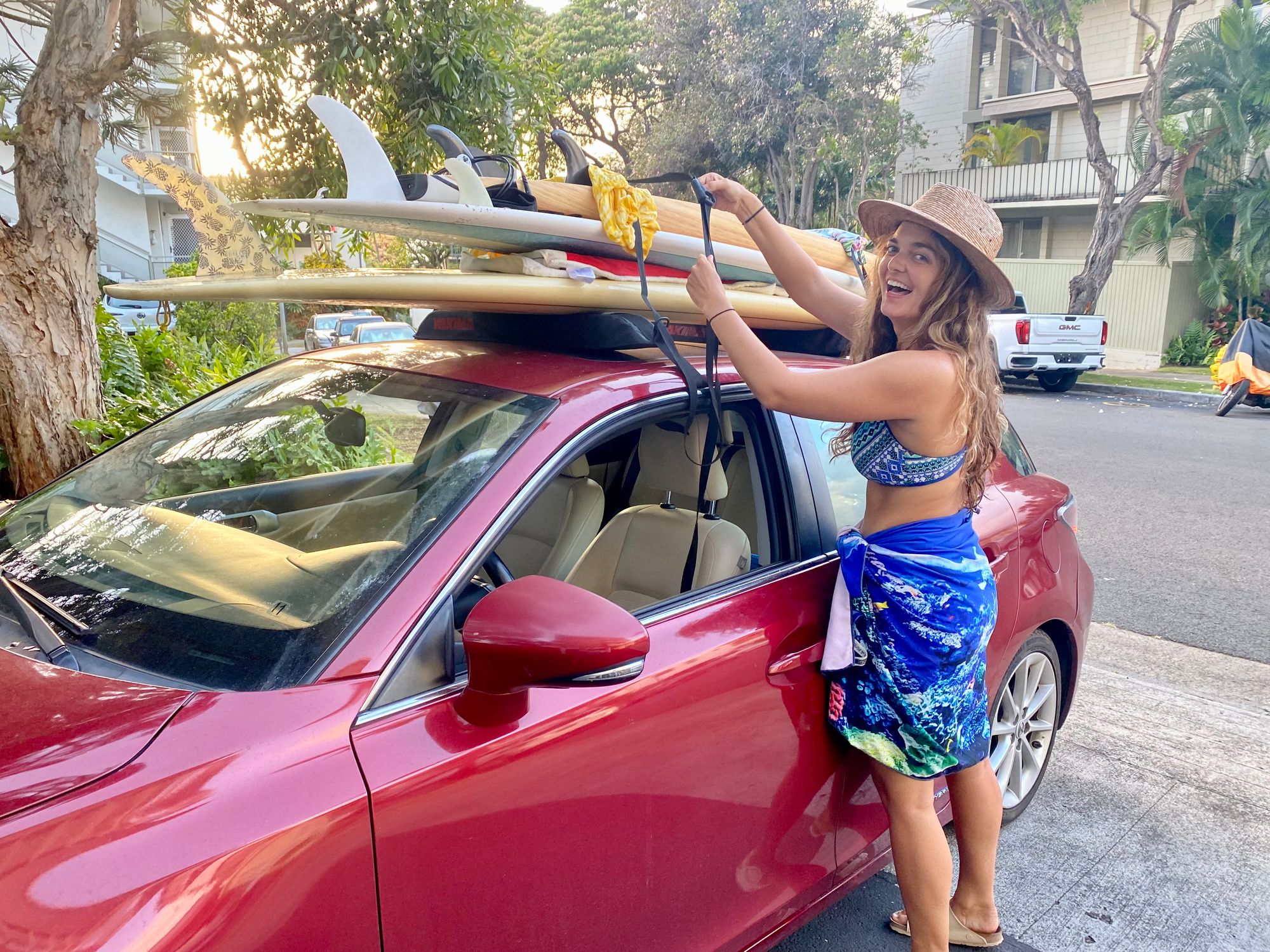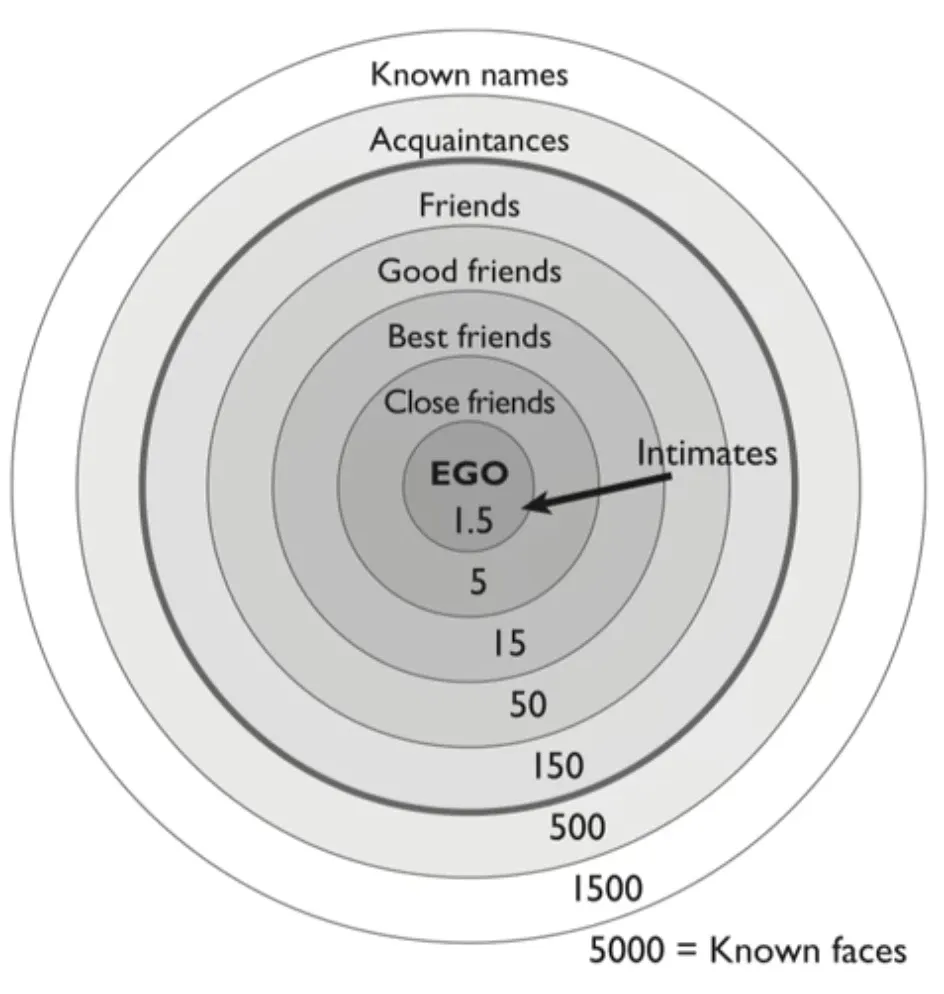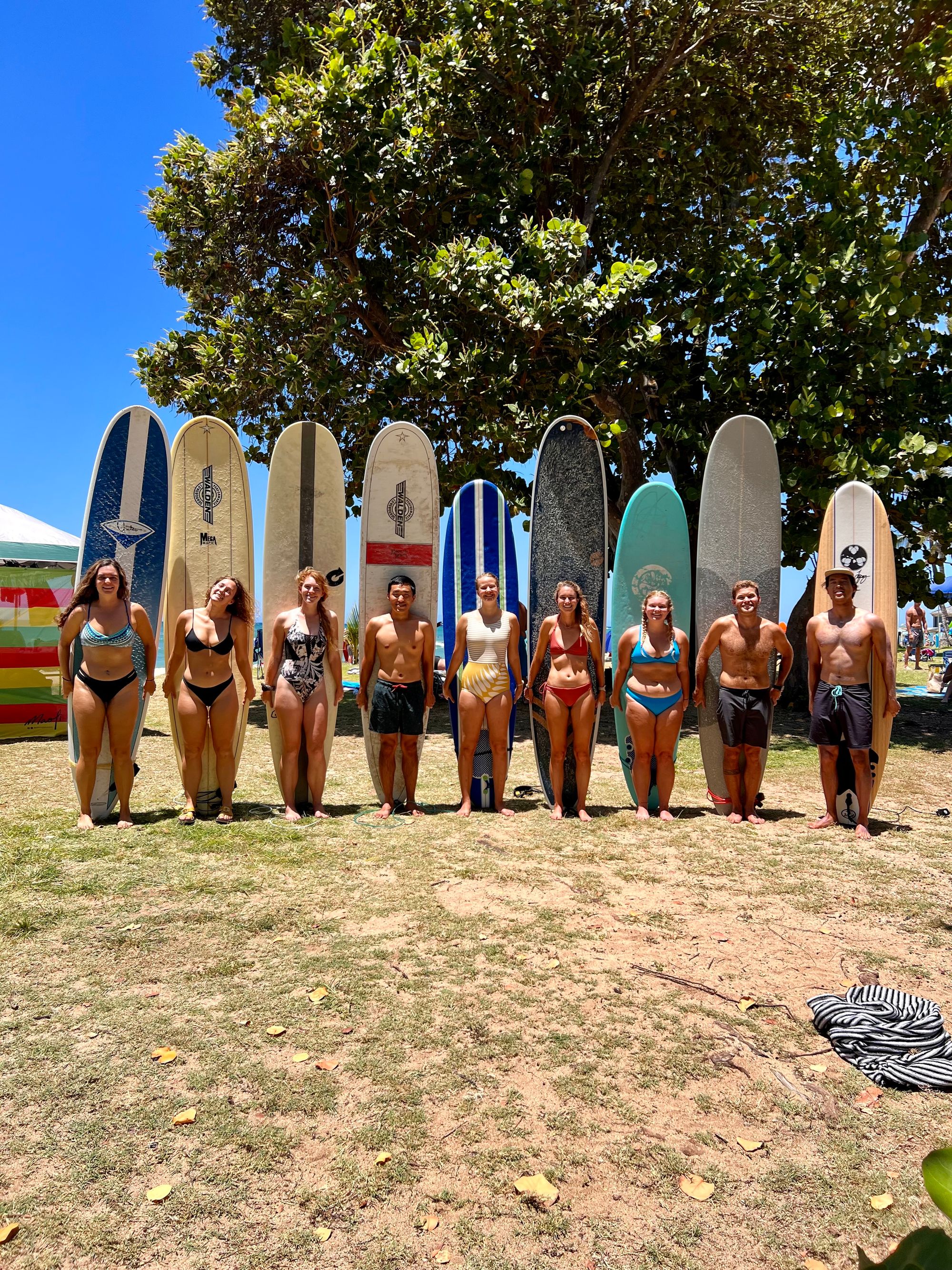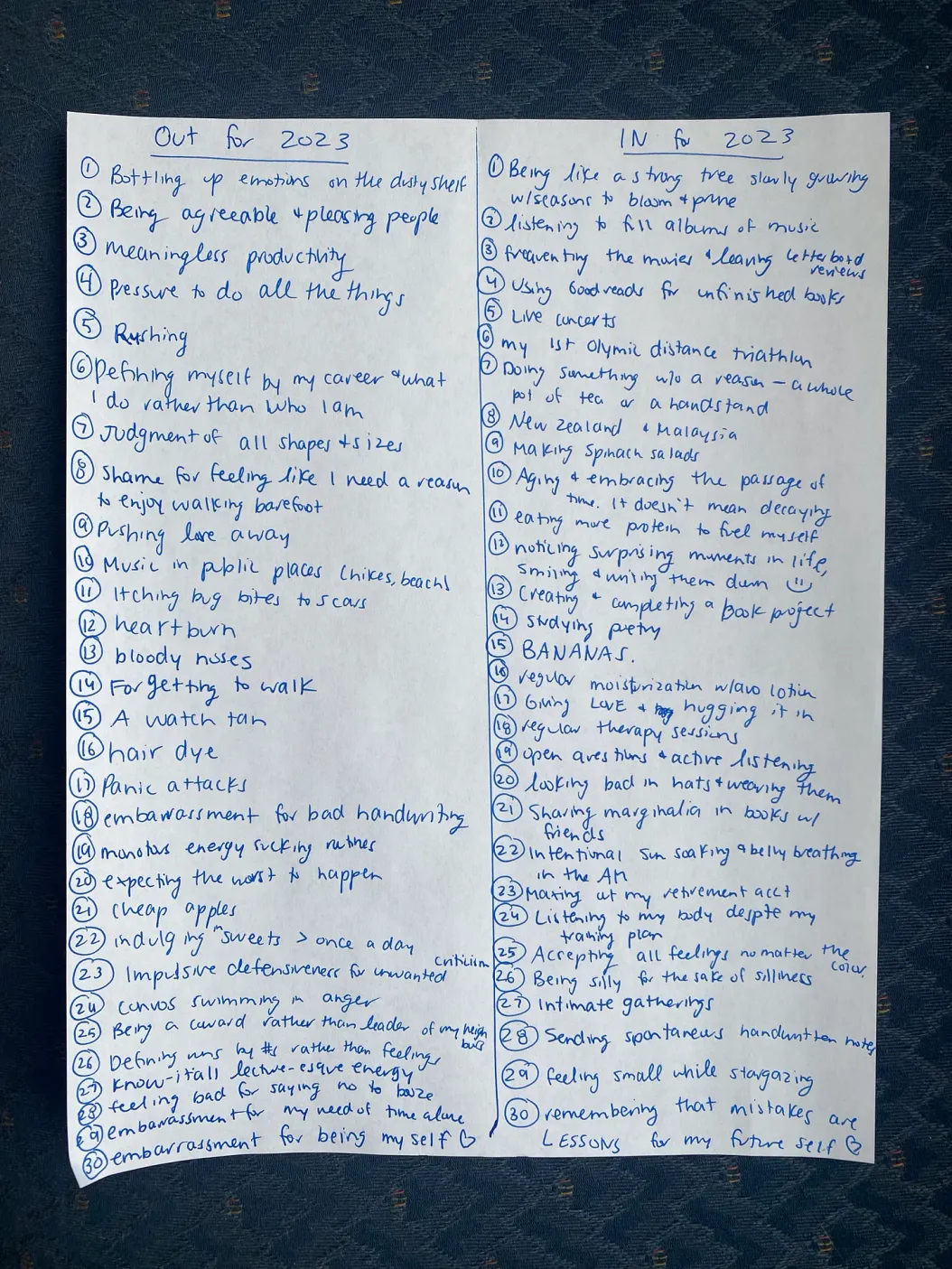If you are new here or missed last week's edition, you can catch up on the past letters here. If you are reading this for the first time, I’d love you to sign up below to join the other learn-it-alls:
Aloha fellow learn-it-all 👋
Greetings from Diamond Head, O'ahu, Hawai'i 🌺

My passport came in! Hallelujah the expedited shipping worked. (I don’t typically trust the government to keep promises.)
Since this happened, I felt that on my tombstone I'd regret not seeing my cousin get married in the Netherlands at the end of July. The land of cheese, bikes, and windmills, here I come!
I'm also going to three other weddings, a cajun dancing party, and catching up with so many other friends this summer. There's a lot ahead. I’ve applied (& been rejected) to get a new credit card to rack some points up. I have never traveled this much in my life, so I'm buckling up my seat belt!
If you have any ideas to add to this above inquiry please tweet them to me or respond to this email to let me know!
Now, let’s dive into letter 114 from a learn-it-all. Enjoy!
❓ Question to think about
What does friendship mean for you?
🖊 Writing
I answered the above question starting with my childhood playdates to today. Here’s an excerpt:
As the years progressed, friendship evolved. There was less play and variety in adulthood, which made it more boring.
Before Hawai'i, I lived in Chicago for two years. On paper, I had every sense of belonging I needed. I could tell a coworker I attended Miami for college, and they’d assume it was the nearby smaller university in Ohio rather than the famous one in Florida. I could say “Snapchat” with the unique “a” accent and people would know I am a Michigander. I could order mild salsa on my Thai food without feeling judged. People understood me there.
I didn’t have to go out of my way to explain myself. There were many others like me which made me a less unique and more familiar type of person. If the quantity of friends is how to win in life, then I was in first place. Friends from high school and from university, co-workers, and even my older brother and cousins surrounded me. Yet, I still felt lonely all the time despite never being alone.
The community that surrounded me knew who I’d been rather than who I was becoming.
Read the full essay here.
🎧 Listening
Creating Routine in Chaos
In Shane Parrish’s Knowledge Project episode on Creating Routine in Chaos with coach and author Jennifer Garvey Berger, they talked about claiming sacred spaces for yourself to pursue activities to lose yourself in that you love. For Jennifer, this is baking and writing; for Shane, this is cooking dinner and reading to his children at night.
When listening to people there are hidden purposes of how we are listening. There are three different types:
1. Listening to win: to convince the person of something.
Think like a salesperson for a pitch or job interview. You are the person for the role, or your product is the perfect solution to their problem. the current situation is all going to be temporary.
Tip: Error on staying away from hijacking the conversation with this. The agenda for this type of meeting is usually set in advance.
2. Listening to fix: the problem-solving nature of us.
Someone who is convinced that their unsolicited advice for something will surely help them. Have you tried this supplement? Have you tried this journaling practice? How can I see your problem and use some of my expertise to make it go away?
Tip: Coach or offer feedback only if this is what someone would like. Only coax a friend if they are open to it. First, ask if that is what they would like.
3. Listening to learn: the more quiet mode affording connection.
I don’t have the solution here and accepting that I can’t make this go away. Ask: how can I know you better? How can I understand the world that you live in or the problem that you’re seeing in some deeper, richer way?
Tip: This is still just as valuable to create space to share while being more silent.
Originally shared in Letter 10.
🎧 Listening
How many friends do I need?
Originally shared in Letter 84.
I listened to a podcast produced by TED: Am I Normal? With Mona Chalabi: How Many Friends Do I Need?. Usually, I stray from using the word ‘normal’ as I wrote in my 2020 Annual Review. It is frustratingly subjective with so many definitions. This pod is different though from a data journalist's perspective where the numbers are given context and she argues that averages are far from the full picture.
Chalabi shares her experience of having moved away from New York City back to London and dealing with a friend 'crisis' of hanging out too much with her mom as her uni friends are now wives and moms. I FEEL this. We all go onto different stages of life and it’s not as simple to connect with friends when that happens.
She converses with British anthropologist Robin Dunbar. He is most known for Dunbar’s theory on the magical number of 150. This is the 'average' number of relationships that a person can maintain.

Some insights this provoked are:
- How will everyone reset friendships in a healthy and safe matter with in-person meetups since this pandemic, if digital contact is merely a band-aid?
- On the range of relationships, if introverts tend to have about 100 friends while extroverts can have up to 300, where do I stand if I feel like my personality is ever-changing between the two?
- How can I still be optimistic, if my circle is now decreasing since reaching my social capital peak at age range 18-22? On top of that, why are young adults within this age range the most likely to feel lonely while having the most friends? How much does emotional maturity have to do with this?
If we can have friends serve three goals of being:
(1) dependable
(2) fun
(3) converse with
… am I better off trying to find people who can fill all three of these buckets? Is it better to delineate friends across these goals?
- While writing out names in different zones of close friends, great friends, just friends, and acquaintances, why did I forget so many people off the top of my head without checking my call logs, texts, emails, etc…? Do I actually need to create a CRM for my friends? (that sounds daunting and unnatural).
📖 Reading
The Pseudonymous Cape
My friend and the most transparent writer I know Charlie Bleecker shipped The Pseudonymous Cape during her month-long Writing Studio program with Michael Dean. She wrote about the benefits of writing under a pseudonym.
Some lines that resonate with me:
After publishing hundreds of essays and newsletters I’ve become more aware of the different types of vulnerability. My pseudonym lets me bring confessions, transparency, and authenticity onto the page. Each one improves my writing, resonates with readers, and leads to self-discovery.
I used to be embarrassed about my struggles. I didn’t want to openly admit them to anyone. But now I love talking about my problems because each time I do I grow and become a better person.
When you write with transparency you basically shout from the rooftops, “This is who I am!” And when you put it all out there and lean into the details of your life without apology, you develop confidence.
📖 Reading
35 Lessons on the Way to 35 Years Old
The stoic and prolific author Ryan Holiday recently reflected on 35 Lessons on the Way to 35 Years Old. Each of them made me stop and scratch my head to think about whether I agreed or not.
Four lessons that I nodded in agreement with:
You don’t have to be anywhere. You don’t have to do anything. All that pressure is in your head. It’s all made up.
Walks improve almost everything.
I didn’t build an audience by telling people what they want to hear. I built it by saying what I think needed to be said.
I know Transparent Tuesday writer Charlie Bleecker (from above) would strongly agree as well.
My kids often nap in the car... as I drive around while they sleep, I’ll look down at the speedometer and think, why am I going so fast? I have nowhere to go, I have nowhere to be…literally the whole point of the drive is waiting…yet here I am trying to hurry while I do it?
—> when in doubt, cultivate patience in my life rather than hurrying.
Two lessons I didn’t agree with:
Lengthen your timeline.
This is sometimes helpful. I tend to beleve that we need more urgency in our lives. For the ambitious like Holiday, who has published over ten books in ten years, he can afford to have more kindness. In my eyes, I'd rather seek urgency and take action on a small experiment than put an experience off for 'someday'. What if that day never comes? Take this with a grain of salt, we still need self-compassion.
Wealth is not having to think a lot about money very often. Sadly this means a lot of rich people choose to live very poorly.
Yes, AND wealth is also having ownership and choice over our most precious commodity: time.
🌟 Quote to inspire
“If you are looking for a friend who is faultless, you will be friendless.” -Rumi
📷 Photo of the Week

The surf wasn't that great at White Plains and I barely got any serves over playing volleyball, but the pancakes were yummy and the stories from the company were rich.
Another win: I didn't get sunburnt!
🙏 Shoutouts
- To Nerd Wallet for having this excellent tool that helps curate the credit cards I should be curating to prevent decision fatigue. Spoiler Alert: I went with the Chase Preferred card
- To Otter.ai which is a fun transcription tool that I read my journal entries to digitize them. Here is a rough audio version of this week's piece on friendship.
- To Education Incubator lead by Miki Tomita for the 5-week Foundations of Aloha online course I've start this past week
- To Katerina Bohle Carbonell and Kym Ellis for supporting the edits on my friendship article above
I appreciate you reading this!
If ideas resonated, I’d love you to leave a comment, reply to this email, or send me a message on Twitter @JenVermet. If you forgot who I am, I welcome you to my online home.
Never stop learning 😁
Mahalo 🌺
Jen
PS - If you missed last week, I wrote about Sailing with skin in the game.
PPS - On a similar topic, if you want to read a distilled tweet thread on the commitment crisis we're living in by David Perell, click here.
If you’re reading this because someone shared this newsletter with you, welcome! I’d love it if you subscribed:
👣 Footnotes
On what thinking for yourself means:
On my disbelief that I actually live in Hawai'i:
Some research I am doing on community building:
On my love for Costco discounts:
On a new tool I just signed up for where I can be sent money to support my writing:

